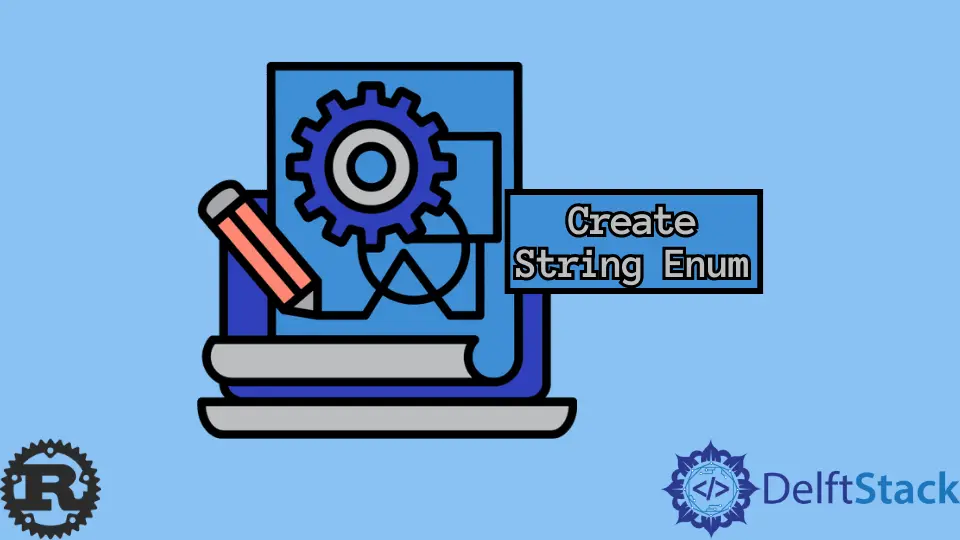How to Create String Enum in Rust

In this article, we will learn about creating string enum in Rust.
Create enums in Rust
In Rust, an enum represents data that is one of the multiple possible versions. The enum keyword permits the development of a type that may be one of several possible versions.
Any version valid as a struct is also valid as an enum. In addition, each version in the enum may have optionally related data:
enum Information {
Quit,
ChangeColor(i32, i32, i32),
Move { x: i32, y: i32 },
Write(String),
}
There are variations with no data, variants with named data, and variants with anonymous data. The syntax for defining variants mimics that of defining structs like tuple structs.
In contrast to individual struct definitions, an enum is a single type. An enum value may match any of the variants.
This is why an enum is frequently referred to as a sum type: the set of potential enum values is the sum of the sets of possible variant values.
We use the :: syntax to refer to each variant’s name, which is scoped by the name of the enum itself.
Strum in Rust
Strum is a collection of macros and characteristics that make working with enums and strings in Rust easier.
EnumString: auto-derives std::str::FromStr is applied to the enum. Each enum version will match its name.
This can be overridden by using serialize="DifferentName" or to string="DifferentName" on the attribute, as demonstrated below. It is possible to add many deserializations to the same variation.
If the variation contains additional data, deserialization will set them to their default values. The default attribute can be applied to a tuple variation with a single data parameter.
The specified variant is returned if no match is discovered, and the input string is captured as a parameter. Here is an example of code created by EnumString inheritance.
#[derive(EnumString)]
enum Cars {
BMW,
Volvo { range:usize },
#[strum(serialize="Toyota",serialize="b")]
Toyota(usize),
#[strum(disabled="true")]
Fiat,
}
Note that the default implementation of FromStr only matches the variant’s name. Both Display and ToString return the specified enum variation. This enables you to convert unit-style variants from enum to string and back again.
In addition, ToString and Display select the appropriate serialization depending on the following criteria.
- This value will be utilized if a string property exists. Only one is allowed per version.
- The serialized property with the longest value is selected. If this behavior is not desired, use to string instead.
- Finally, the variant’s name will be utilized if neither
serializenorto stringproperties exist.
Display is preferable over ToString All types implementing ::std::fmt::Display have a default implementation of ToString.
use std::string::ToString;
#[derive(Display, Debug)]
enum Cars {
#[strum(serialize="redred")]
BMW,
Volvo { range:usize },
Toyota(usize),
Ferrari,
}
fn debug_cars() {
let BMW = Cars::BMW;
assert_eq!(String::from("BMWBMW"), BMW.to_string());
}
fn main () { debug_cars(); }